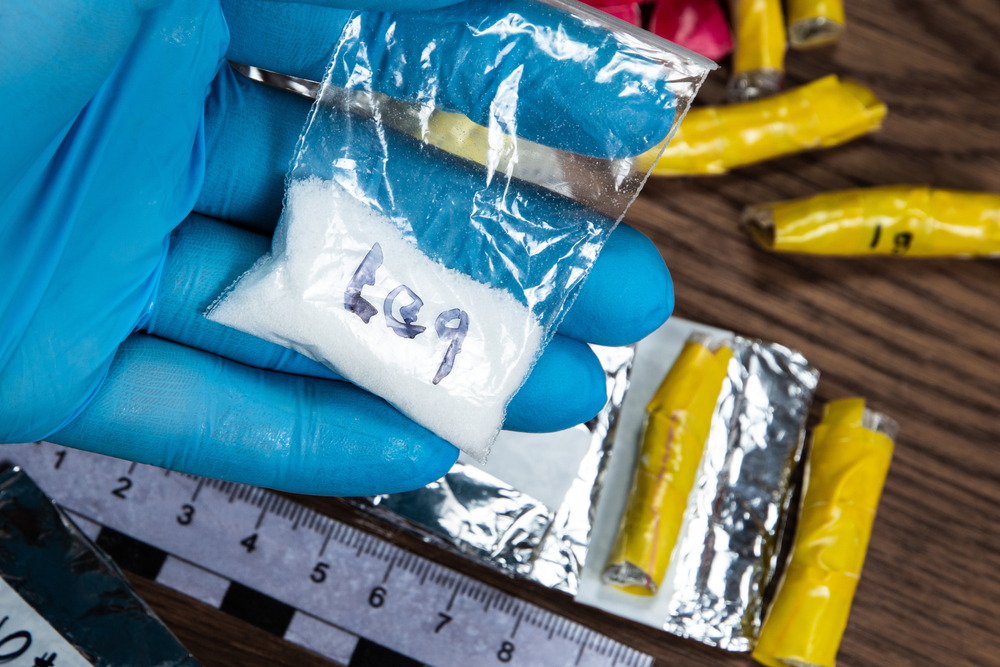 A sentence for possession, manufacturing, or another offense involving cocaine can include imprisonment and fines. State laws punish these crimes harshly. If convicted, you could spend as much as 30 years behind bars, depending on the amount of cocaine involved in the offense and your criminal background.
A sentence for possession, manufacturing, or another offense involving cocaine can include imprisonment and fines. State laws punish these crimes harshly. If convicted, you could spend as much as 30 years behind bars, depending on the amount of cocaine involved in the offense and your criminal background.
Defending a cocaine charge can be complicated. It requires an effective legal strategy to discount the prosecution’s theories and instill doubt about your guilt in the minds of the jurors. There are steps you should take if you’re arrested for possession or another cocaine offense.
Steps You Should Follow After an Arrest
You have specific rights if you were arrested for a crime involving cocaine. You should take immediate action to protect yourself so you don’t say or do anything that could negatively impact the outcome of your case.
Don’t Say a Word
If an officer asks you to identify yourself, you must respond. However, you don’t have to speak with them about the criminal offense. You have a right to remain silent, and you should.
Law enforcement might try to gather information about what happened. Although explaining yourself might seem like a good idea, you could say something incriminating.
Your best option is to stay quiet about the crime. However, you shouldn’t disrespect the police. Remain polite during your interactions and inform them you don’t want to talk to them without your lawyer.
Refuse a Search
Law enforcement can look in the areas immediately surrounding the location of your arrest. However, they cannot search your home or vehicle without a valid search warrant or probable cause. If they ask for permission to take a look around, politely tell them you do not give consent. If they still conduct a search, don’t try to stop them – leave that matter to your lawyer to be handled later.
Hire a Lawyer
You should ask to speak with your criminal defense lawyer following the arrest. It is your right to retain a lawyer’s services and have them with you if the police intend to question you about the offense. If law enforcement violates this right, this might potentially benefit you in your efforts to get the charges against you dropped later.
Common Defenses Used Against Cocaine Charges
Once you hire a lawyer, they can take over your case and develop a plan to defend you. The most common defenses involving cocaine relate to issues listed below:
Constructive Possession
Constructive possession means that you had knowledge that the drug was present as well as the ability to take control of it. Your criminal defense lawyer could argue that you didn’t know about the presence of the cocaine. It might be possible to use this defense if you were in a location with more than one person.
For example, let’s say that you borrowed your friend’s car and a police officer pulled you over. During a search of the vehicle, the officer found cocaine in the glove box. However, you didn’t know it was there because you don’t own the car. Your lawyer could argue that you weren’t in constructive possession.
Temporary Possession
Temporary possession occurs when someone takes transitory, momentary, or temporary possession of a drug from the owner. The cocaine you had on you at the time of the arrest might not have been yours. Since you never exercised control or dominion over the substance, it can be argued that you didn’t legally possess it.
Illegal Search and Seizure
Another common area of attack when fighting a cocaine charge is arguing that law enforcement performed an illegal search or seizure. Police officers are not allowed to search your person, vehicle, or home without a search warrant. They might try to coerce or intimidate you into permitting them to perform a search, but you have the legal right to refuse.
Your attorney could file a motion to suppress the evidence if law enforcement finds anything linking you to the crime during what is later determined to be an illegal search. If the Judge agrees that the search was illegal, it will typically mean that the prosecution can’t present that evidence in court, which is called suppression of evidence.
Lack of Knowledge
You might have been in possession of the cocaine but didn’t know it was an illegal substance. The state must prove that you knew about the illicit nature of the drug to convict you of possession or another type of cocaine offense. You could argue you thought the white powder in your home was baking soda or flour (although just asserting that wouldn’t mean that you would win, as a Judge would still have to believe that you truly believed that).
Innocence
The most straightforward defense strategy is to claim that you are innocent of the crime. A solid alibi could place you somewhere else during the offense.
For example, there might be video footage of you doing grocery shopping at the exact time another person possessed or delivered the cocaine. Substantial evidence that an alibi exists may result in a finding of not guilty.
Contact Us
If you were charged with a cocaine offense, do not hesitate to contact Mitchell S. Sexner & Associates LLC. For more than 30 years, we have represented clients in Chicago and across Illinois for a wide range of drug-related cases. We have the experience attorneys and resources to create the appropriate defense to fight the charges you face. Call us at (312) 644-0444 right now or reach out to us online for a free consultation.
